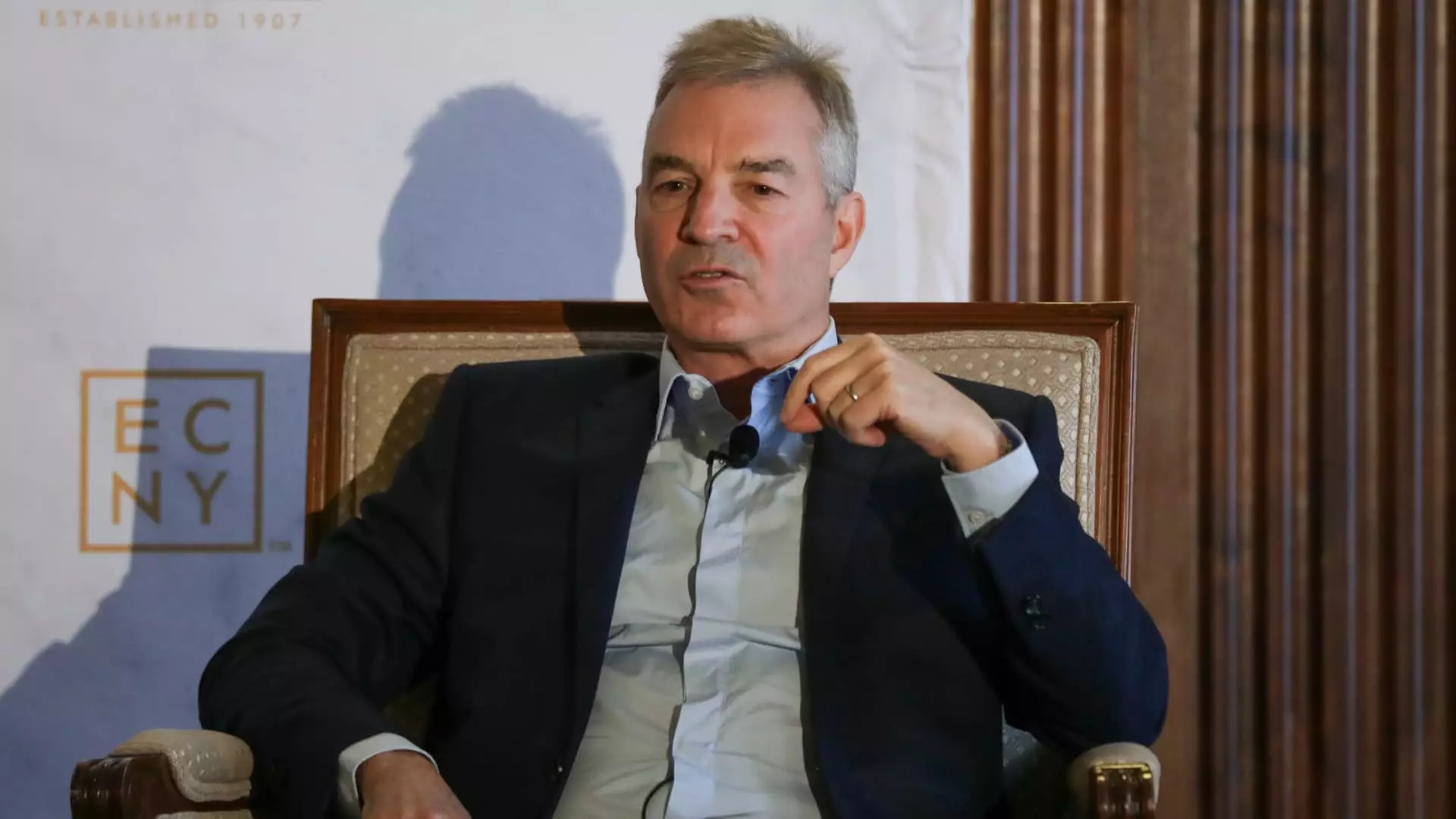As Daniel Loeb ushers in the 30th year of his hedge fund Third Point, he has articulated a sentiment capturing the exhilarating yet treacherous wave of artificial intelligence—either one defines their role as a conqueror or succumbs to becoming roadkill in an increasingly volatile market. In an engaging conversation with CNBC’s Scott Wapner, Loeb’s perspective transcends mere economic predictions; it is a battle cry for stakeholders to adapt, evolve, and harness AI not merely as an asset but as a lifeline in an investment landscape that is experiencing seismic shifts.
Investors who choose to ignore the insistent drumbeat of technological progress risk being swept away by an unforgiving tide. Loeb’s suggestion that firms must remain nimble and agile is more than sound advice—it’s a clarion call that those who remain stagnant will be left behind as history marches forward.
A New Era of Investment Strategy
Loeb’s mainstream acceptance of AI as a game-changing force signals both a philosophical and practical shift in investing. Historically, hedge funds were quick to react to market trends; yet, in this unique intersection of tech and finance, prescience has become paramount. Third Point’s recent portfolio restructuring showcases an audacious embrace of AI beneficiaries. Whether investing in behemoths like Google or identifying promising players like the London Stock Exchange, Loeb demonstrates a forward-thinking approach that positions the firm not just to survive but to thrive in an uncharted digital territory.
For the first time in decades, fund managers must outpace the rate of innovation. Traditional companies can no longer rest on their laurels; they must leverage technology to ensure they remain relevant. Loeb’s comments underscore that investing is no longer solely about financial metrics; it’s about assessing how effectively a company utilizes AI to bolster its offerings and secure a competitive edge.
Reaffirming Historical Resilience
Loeb’s journey with Third Point has been nothing short of remarkable. From starting with a humble $3.2 million, navigating market catastrophes like the dot-com bust and the 2008 financial crisis, to now overseeing over $20 billion, Loeb’s persistence is emblematic of what it takes to be a titan in modern finance. His hedge fund has evolved beyond traditional activism, branching into credit and venture investments—each movement strategically calculated.
Investors seeking shelter in established firms often overlook the lessons of the past. Loeb embodies the spirit of adaptability: ready to pivot when circumstances shift. His faith that the short-term uncertainties of the market will dissolve by 2026 reveals a calculated optimism—a belief that even in turbulent times, opportunities abound for discerning investors.
Cautious Optimism Amidst Market Turbulence
The current investment climate is rife with contradictions. While there are cautionary tales of market instability, Loeb’s belief in identifying quality, growth stocks at reasonable valuations represents a hopeful thesis—one that prizes thorough analysis over gut instincts. He has also re-invested in US Steel as a strategic move to bet on its acquisition by Nippon Steel, showcasing a meticulous approach to find value where others might see risk.
This cautious optimism speaks volumes about Loeb’s understanding of macroeconomic patterns. Despite the foreboding uncertainty, he suggests that an economy growing at just one percent offers fertile ground for innovation-led companies. Now, more than ever, the differentiation between winners and losers will define market success, indicating that quality over quantity should be the guiding principle for investors navigating these uncertain waters.
Daniel Loeb’s insights paint a vivid picture of a rapidly changing financial landscape. Investors must understand the transformative impact of artificial intelligence, not as a mere trend but as a necessity for survival. The stakes have never been higher, and opportunities are ripe for those dare to embrace change. As we journey deeper into the 21st century, the true victors will be those with the foresight to adapt and the fearlessness to innovate, marking their names in an economy increasingly dominated by technological intelligence.

